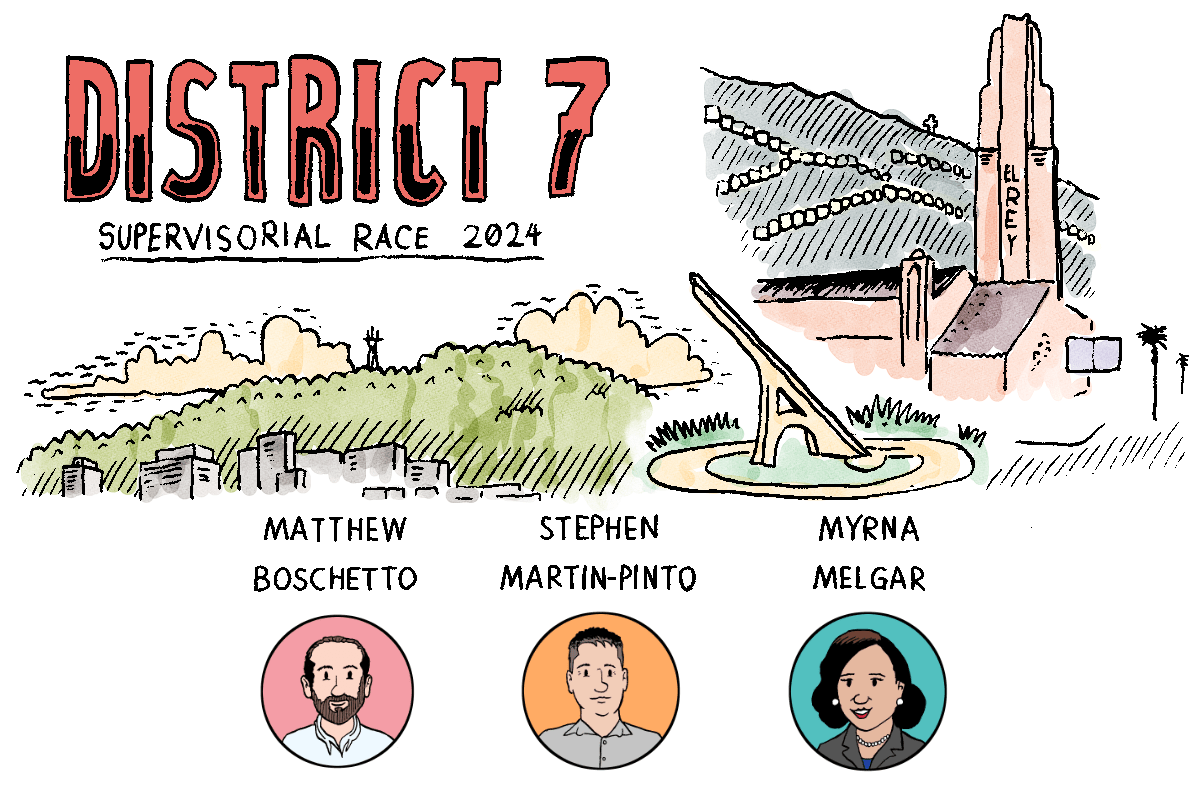“Meet Mark,” mayoral candidate Mark Farrell’s campaign website invites in bold, black font, urging viewers to read on. “Mark was a lawyer, investment banker, and co-founded Thayer Ventures, an investment firm focused on the travel and mobility sectors,” a reader learns. In meeting Mark, a reader never encounters the words “small business owner.”
When Farrell donates to political campaigns, he is also never a “small business owner”: Going back to 2008, Farrell has repeatedly referred to himself as a “venture capitalist,” “investment banker” or similar on campaign forms. As recently as Feb. 13 this year, when Farrell donated $500 to his own mayoral campaign, he called himself an “investor.”
That all changed, however, when Farrell filled out his nomination filing form and requested the Department of Elections designate him as a small business owner on November’s ballot. In 2010, when initially running for supervisor, he did this as well.
Farrell is, in fact, the managing director of his venture capital firm, Thayer Ventures which, in 2022, listed $100 million in capital, according to a company press release; the annual revenue of the firm is unclear.
Farrell’s statement of economic interests, a required form for candidates, indicates that he receives a salary of more than $100,000 from Thayer Ventures, and has holdings of at least $10 million in entities associated with the firm.
Still, in all likelihood, he will be allowed to use the “small business owner” designation come November.
“At this time, the department is not planning to take further action,” said John Arntz, the director of the Department of Elections.
The department wrote in an email Friday that, technically, Farrell can use the designation, because Thayer Ventures falls within the U.S. Census Bureau definition of a small business, which references the Small Business Administration: A firm generating up to $40 million in revenue, with 100 to 1,500 employees. Critics have until June 24 to object.
The department is not required to follow the federal guidelines, but opts to do so. “We don’t have standard definitions that we apply to the various designations filed each election,” Arntz said.
The ballot designation, around since 1931 in California and unused by other states, can be a way for candidates to speak to voters, many of whom may first learn of the candidate’s existence when filling out their ballot. As such, academics and election lawyers said, it can be a powerful tool for winning over voters.
“If the race is close, it could matter,” said Bruce Cain, a Stanford political science professor. “That could be it.”
To voters, the designation of “small business owner” is likely to conjure up something other than the managing director of a venture capital firm, and that’s significant, Cain said.
Chris Hemmeter, who is also a managing director and co-founder of Thayer Ventures, said that the Department of Elections had reached out to him to verify that Farrell is a small business owner. “Whatever the federal designation of a small business is, it’s that,” Hemmeter said.
For venture capital, the Small Business Administration deems firms “small” if they have “average annual receipts” of less than $47 million.
“We don’t have anything else to add,” said Jess Montejano, Farrell’s campaign spokesperson, who did not give any comment regarding this designation.
Guidelines for ballot designations
The period for “public review and possible legal challenge” of the ballot designations — among other possible challenges — is 10 days, from June 12 to June 24, according to the Department of Elections.
At least one private individual has already filed a challenge to Farrell’s designation.
The litmus test in the candidate guide issued by the city and the full state code on ballot designations does not refer to any federal, state or city definitions, but instead offers candidates a list of questions that should be answered “yes” to determine if a designation is accurate.

Candidates are also asked on the form to give the reasons for their designation, presumably as a way of answering these questions. Farrell left that space blank.
A lot of voters don’t know who any of the candidates are, said Cain. “They’re going to make up their mind in the booth,” he said. That is particularly true this year when, for the first time in recent history, San Francisco voters will be choosing their mayor during a presidential election year. This means more residents will voting, and more people will be making decisions at the last minute. Seeing what a candidate’s occupation is is a factor that many voters take into consideration.
A 2021 research paper by Peter Nemerovski, an associate professor at the University of North Carolina, Chapel Hill, argues that California’s ballot designations, rare in the United States, should be abolished. “Originally intended to help voters identify candidates and distinguish between candidates with similar or identical names,” they have become “a means by which candidates seek to appeal to voters,” aided by political consultants.
The paper quotes Chad D. Morgan, an elections lawyer, saying, “[b]allot designations are a big deal, especially in local elections and down-ballot races. … As one can imagine, candidates have a tendency to get very creative when choosing a designation.”
Cain said that “small business owner” is like “like motherhood and apple pie,” and would appeal to a wider range of voters than “venture capitalist.”
The designation is rare
At least two other candidates have identified their ballot designations as “small business owner:” District 1 supervisor candidate Marjan Philhour and District 7 supervisor candidate Matt Boschetto, who has a flower business with four full-time staff. Although Philhour did cross out the “small” in her designation, replacing it with “neighborhood.”
In earlier elections, few candidates have described themselves as “small business owner.” More common is “business owner” and that would seem to be an umbrella term that would fit Farrell’s occupation — even though it, too, appears to be a title Farrell has not gone out of his way to apply to himself.
If the nomenclature of “small business owner” is uncommon on the ballots, it never appears in recent videos in which Farrell talks about himself. It is not a term that Farrell used, for example, in his half-hour interview two years ago with two students from Georgetown University’s business school. In it, he refers to himself as a lawyer, an investor, and as having an investment banking firm. His only regret, he tells the students, was staying in banking too long.
And in a longish, more recent interview with CNBC on running for mayor, he says, “I spent 20 years practicing law, in business, and in finance and running an investment firm.” Again, he fails to reference anything about the challenges facing a small business owner.
“Mark Farrell was clearly trying to pull a fast one on the voters,” said Joe Arellano, the campaign spokesperson for Mayor London Breed.
Jim Stearns, a political consultant who works on the campaign of rival mayoral candidate Aaron Peskin, said that while he does not know how the city defines a small business, “It doesn’t really pass the smell test.”
“I think it’s absolutely dishonest,” Stearns said.
Additional reporting by Lydia Chávez.









I have no interest in Farrell, but this seems like an odd topic for Mission Local to write two articles on. A law firm can be (usually is) a small business. A bank can be (most are) small businesses. An investment firm can be a small business. I’m puzzled why you folks attach some sort of mystical meaning to the words. The federal Small Business Administration doesn’t. Small business is just not “big business” – Fortune 500 firms, some publicly-traded firms (which can also be small businesses).
I get it – YOU think it means someone with a bodega, or a nail salon, but just because you attach some sub-defining connotation to the words doesn’t make it so.
Stephen defending the indefensible, good job. Anyway there is not a single candidate which is not tainted by money. Elections after elections we select someone only to discover later that they are helping themselves in the cookies jar.Zero interest for their citizens, just power and money ;and that applies at the national level as well.
“YOU think it means someone with a bodega, or a nail salon…”
Obviously, there’s a level of deception going on here because most people (you, too) would view Farrell differently if he were an unknown “small business owner.” If he’s a venture capitalist he should just own it.
“I get it – YOU think it means someone with a bodega, or a nail salon, but just because you attach some sub-defining connotation to the words doesn’t make it so.”
===
No, pretty much everyone assumes a “small business owner” is someone like a guy with a truck and a lawnmower, or a corner liquor store, or a nail salon. Nobody hears “small business owner” and thinks, “Oh, it must be a $100-million-dollar venture capital firm.”
(Rollseyes) Yeah, nothing like getting things off on the right foot with some gaslighting hairsplitting semantics. Farrell might be a lot of things. One thing he’s not, and that’s small business owner.
I object as the common understanding of small business is a small business who struggles to stay afloat-not venture capitalists and banks and multimillion dollar businesses….I already wrote to the election commission objecting and I hope lots of people do….this is misleading and it does matter….I am glad that Mission Local lets me know about things like this because they increase my (our) ability to participate in what is supposed to be a democracy. It’s easy to write to the Election Commission by email….please do it.
What will people think when they discover this is the least of Farrell’s misleadings? I have SFGOVTV video (May 24, 2012) but no one in the media wants to use it. What’s up with that?
I’m suspicious of the amount of people marking the negative comments as minus. Is that you, Mark?
I had the same suspicions. Then it dawned on me: he’s a small business owner with many adoring customers who have come to his defense against these libelous assertions.
Or maybe it’s just that he took some of his gobs of small-business earned cash and paid a bunch of people to defend his honor.
Farrell is also listed on the disclosure form as partner at Inspirato Inc, which merged with Thayer Ventures Acquisition Corp.
Thanks to Kelly and Junyao for this excellent and well researched article. Candidate Mark Farrell is unapologetic about his shape shifting and flim flammery. He should stick to Brofinance, venture capitalism and banking. Our beautiful, magical San Francisco deserves better. So, SO much better.
How about identifying himself as a liar?